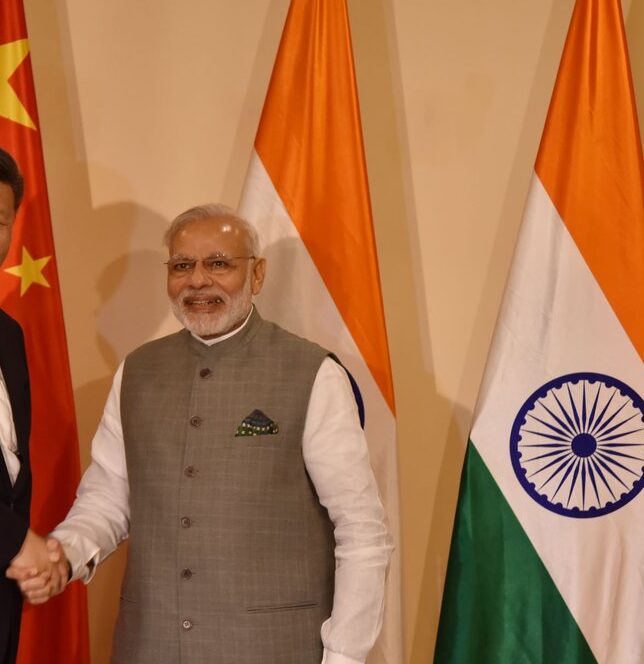Key Takeaways:
- Donald Trump delivered a strange monologue about Prime Minister Narendra Modi.
- He praised Modi’s looks, then called him “a killer.”
- Trump attempted an exaggerated Indian accent impersonation.
- He claimed credit for ending India-Pakistan hostilities with tariffs.
- Indian officials denied his mediation role and quietly dismissed his narrative.
Trump Modi Monologue Steals Summit Spotlight
At the Asia-Pacific Economic Cooperation summit in Gyeongju, South Korea, President Donald Trump gave a surprising Trump Modi monologue. First, he complimented Prime Minister Narendra Modi’s appearance. Then, in seconds, he labeled him “tough as hell” and “a killer.” After that, the president attempted an Indian accent. The room grew silent. Later, some delegates shared confused looks.
Why Trump Modi Impression Raised Eyebrows
Trump began by saying Modi looked like “someone you’d like as your father.” Next, he flipped to say, “He’s a killer.” Then he mimicked Modi in a dramatic voice, “No, we will fight!” He even asked, “Whoa, is that the same man that I know?” His words broke formal summit norms. Moreover, his caricature felt out of place at a diplomatic event.
Trump praised his own deal-making style and credited himself for ending a four-day war between India and Pakistan. He said his threat of 250 percent tariffs stopped the fighting. Later, officials from both countries denied he had any role. In fact, India never asked for his help. Despite that, Trump continued to boast about his so-called mediation.
Trump’s Remark on Modi
Trump claimed he resolved the conflict in 48 hours by threatening massive trade barriers. He said, “That’s a nice way of saying we don’t want to do business with you.” Then he contrasted himself with President Biden, implying Biden would never act so boldly. He asked, “You think Biden would have done that? I don’t think so.”
However, Indian spokespeople rejected Trump’s account. They said no U.S. threats influenced their decisions. In addition, reliable sources said Modi skipped a previous summit to avoid Trump’s self-praise. Consequently, the Indian leader may have tried to sidestep more awkward moments.
Impersonating Modi with an Indian Accent
Trump’s impression of Modi drew the most criticism. He pitched his voice higher and added a heavy accent. Someone in the room recalled feeling stunned. Others later said the act felt disrespectful. Moreover, mocking a world leader’s speech style can harm diplomatic ties.
First, impersonations at political events can provoke misunderstandings. Then, they might offend entire communities. Transitioning from serious points to jokes can confuse any audience. Therefore, world leaders often avoid accents or caricatures.
Claims of Mediating India-Pakistan Conflict
The president took full credit for a sudden ceasefire. He said he threatened to impose huge tariffs on both India and Pakistan. Then, he claimed both sides quickly backed down. Yet, both governments consistently told reporters they never received any U.S. threat.
Furthermore, both New Delhi and Islamabad handled their talks privately. Each side also cited multiple back-channel communications, not trade threats. In addition, experts say a tariff threat would take months of paperwork. It could not produce a same-day ceasefire.
Modi’s Response and Summit Reactions
Observers at the summit gave mixed reactions. Some laughed nervously at Trump’s jokes. Others kept straight faces. Diplomats later exchanged raised eyebrows and quiet whispers. One attendee said they had never seen anything so curious.
In contrast, leaders from other nations stayed focused on policy talks. They discussed trade, climate change, and technology. Meanwhile, Trump’s monologue became the summit’s odd highlight. Social media lit up with videos of his impression. Some called it cringeworthy. Others blamed the White House staff for poor planning.
What This Means for Future Summits
First, world stage events require careful preparation. Leaders cannot assume every moment can be casual. In addition, cultural sensitivity matters more than ever. If a president mocks another leader’s accent, it risks diplomatic fallout. Moreover, allies may lose respect, and rivals may gain leverage.
Next, summits rely on genuine dialogue. Leaders must address real issues, not stage antics. For example, trade agreements and security pacts need clear talks. Meanwhile, unplanned jokes can steal focus from critical problems.
Finally, media coverage will likely revisit this Trump Modi episode. Journalists will ask if the U.S. still leads with seriousness. They will wonder if satire has replaced substance.
Looking Ahead
Diplomacy thrives on respect, clarity, and sincerity. Trump’s sudden shift from praise to mockery undercut that reputation. His claims about mediating a major conflict faced strong rebuttals. As a result, this monologue will be studied by students of politics and diplomacy.
However, the world moves on. Other leaders will aim to learn from this moment. They will emphasize cultural awareness and avoid off-hand remarks. In turn, future summits may set stricter speech guidelines. Ultimately, global cooperation depends on genuine engagement, not impromptu skits.
Frequently Asked Questions
What exactly did Trump claim about the India-Pakistan conflict?
He said his threat of 250 percent tariffs caused a four-day armed clash to end within 48 hours.
Did Indian officials confirm Trump’s mediation story?
No. Both India and Pakistan denied any U.S. threat or direct involvement in the ceasefire.
How did Prime Minister Modi respond to Trump’s imitation?
Modi did not publicly comment. However, sources say he skipped a past summit to avoid such moments.
Could this incident affect U.S.-India relations?
Possibly. Diplomats worry that mocking a leader’s accent could strain ties and reduce mutual respect.
